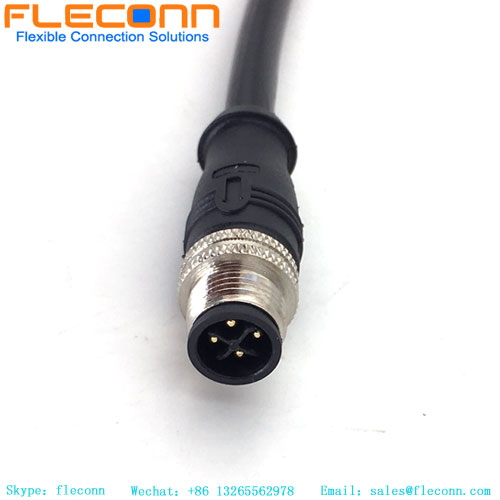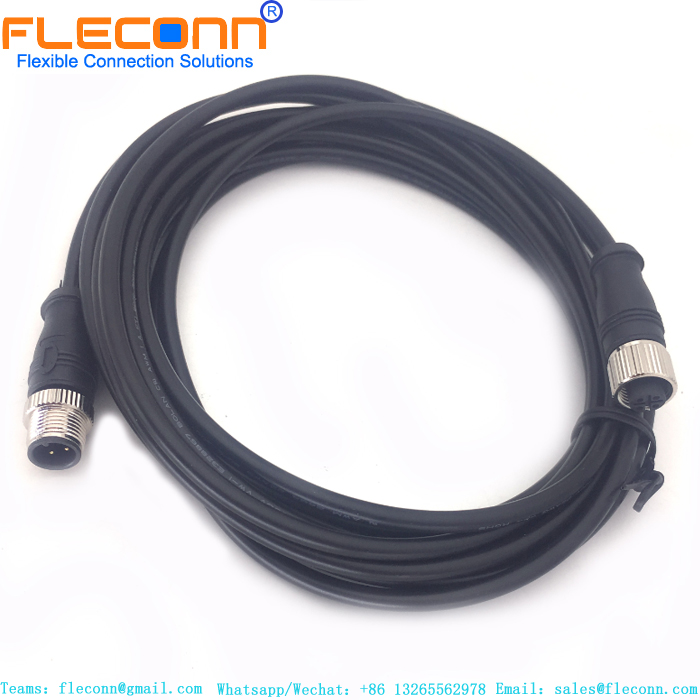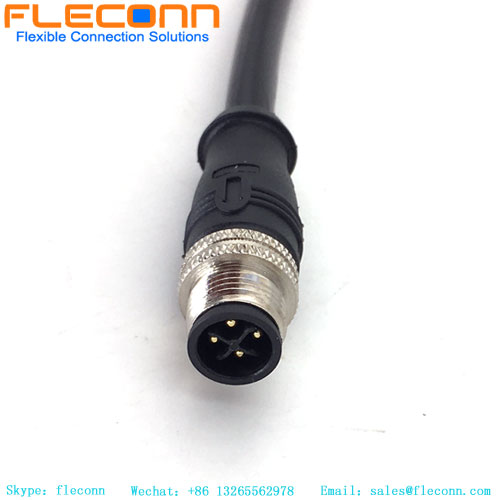M12 connector cables are integral to industrial automation, where reliable, compact, and robust connectivity is essential. These cables ensure secure connections for transmitting power, signals, and data across automated systems. Their rugged design and adaptability make them ideal for the demanding environments of industrial automation.
Applications of M12 Connector Cables in Industrial Automation
1. Sensor and Actuator Integration
Sensors: M12 cables connect various sensors (e.g., temperature, pressure, and proximity sensors) to Programmable Logic Controllers (PLCs) or other control systems for real-time monitoring.
Actuators: Used for linking actuators, such as solenoid valves, electric motors, or hydraulic systems, ensuring precise execution of automated tasks.
2. Robotics and Motion Control
Robotic Arms: Provide connections for power and signal transmission in robotic systems, facilitating motion control, feedback, and communication.
Automated Machinery: Enable the synchronization of moving parts in manufacturing equipment, such as assembly lines or CNC machines.
3. Conveyor Systems
Monitoring and Control: M12 cables connect sensors and actuators in conveyor systems, allowing efficient material handling, tracking, and system adjustments.
4. Industrial Ethernet and Communication
Data Transmission: M12 connector cables with D and X coding are used in Ethernet networks, providing high-speed and reliable data transfer.
Fieldbus Systems: Support protocols such as PROFIBUS, DeviceNet, and CANopen, critical for distributed automation and communication between devices.
5. Machine Vision and Inspection Systems
Camera Connectivity: M12 cables link cameras to controllers or processing units in machine vision systems, commonly used for quality control and defect detection.
Monitoring Systems: Used in automated surveillance or monitoring setups within industrial facilities.
6. Control Panels and I/O Modules
Distributed I/O: M12 cables connect remote input/output modules to central PLCs, enabling decentralized automation and better scalability.
Power Supply: Deliver power to devices in control panels while maintaining compact and organized wiring.
7. Mobile Automation
AGVs and Mobile Robots: Used in Automated Guided Vehicles (AGVs) and autonomous mobile robots for power and signal connections, ensuring reliable operation in warehouses and production floors.
8. Harsh Environmental Applications
Industrial Environments: Their IP67/IP68 ratings ensure resistance to dust, water, and other contaminants, making them suitable for harsh industrial conditions.
Vibration-Resistant Applications: Frequently used in machinery with high levels of vibration, such as heavy manufacturing equipment.
9. Renewable Energy Systems
Wind Turbines and Solar Plants: Provide connections for sensors and control systems, enabling automation in renewable energy facilities.
10. Process Automation
Food and Beverage Industry: Stainless steel M12 connectors are used in sanitary environments where hygiene is critical.
Pharmaceutical and Chemical Industry: Resistant to corrosive chemicals and capable of withstanding high-pressure washdowns.
Key Features Beneficial in Industrial Automation
Compact and Modular Design: Fits easily into tight spaces in automated systems.
High Reliability: Ensures secure connections with minimal signal loss.
Wide Compatibility: Available in different coding types (A, B, C, D, X, etc.) to support varied applications.
Durability: Resistant to mechanical stress, temperature extremes, and electromagnetic interference.
Fast Installation: Plug-and-play functionality reduces installation time and downtime during maintenance.
Conclusion
M12 connector cables are indispensable in industrial automation, providing robust, versatile, and reliable connectivity for sensors, actuators, controllers, and other automation devices. Their ability to withstand harsh conditions and support modern communication protocols makes them an essential component in enhancing efficiency, reliability, and scalability in automated systems.








